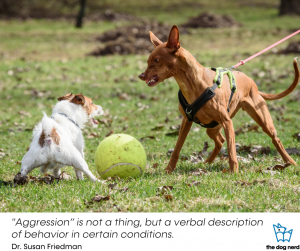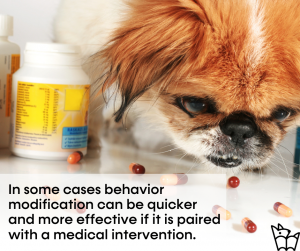(Disclaimer: It is not my goal to diminish the problem. Aggressive behaviors are not acceptable in our society and showing them can have serious consequences for the dog and their owner, as well as for the victim. Living with an aggressive dog can also cause a lot of stress and anxiety for the owner. It might be a good idea to see a therapist yourself!)
“Aggression” is one of the most frequent reasons for seeking out professional help. Basically, any strong reaction (barking, lunging, snapping) in any context can get labeled as “aggression” and people usually assume bad intent behind it. While some dogs certainly aim to bite, many – if not most – show aggressive behaviors simply in order to get more space. When dealing with any kind of problems, it is important to separate our narrative from the facts.
This post examines what aggression is and how it can be analyzed. Catch up on what aggression isn’t in part one.
 Continue reading “Help, my dog is aggressive! Part 2”
Continue reading “Help, my dog is aggressive! Part 2”


